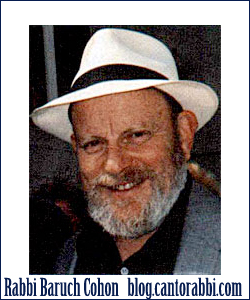HOLY ARITHMETIC – Re’eh, Deut.13:1 – by Rabbi Baruch Cohon
In this week’s reading Moses covers several subjects including tithes and the pilgrim festivals and the proper way to prepare and eat meat. For blog readers, I choose just one sentence: “All this thing that I command you, you shall be careful to do; do not add to it and do not subtract from it.” Clear enough, right? Just a little holy arithmetic. This is the sum total. Not 614, not 612, exactly 613. Period.
Now how do you apply this principle? Rashi offers examples of adding within one mitzvah. Alulav – the branches we wave on the Succoth holiday – traditionally has 4 species. Don’t use 5. That would not make your lulav any better quality than mine, in fact it could disqualify it. Again the Priestly Benediction consists of 3 blessings. Don’t think you are doing something great by making it 4. Your tallis (prayer shawl) needs 4 tzitzis (the specially knotted fringes) on its 4 corners. Don’t attach 5. Etcetera.
Maimonides declares that frequent and willful changes to Torah laws would weaken people’s faith. “It would seem as if these laws are not of Divine origin.” At the same time, he points out that permission is granted to the “wise men of every generation to erect a siyog latorah – a fence, or hedge – around these laws to ensure their observance. And they have the power temporarily to dispense with a certain required action, or to allow that which is otherwise forbidden — if exceptional circumstances make it necessary. But none of the laws can be abrogated permanently.”
Just one example of this last “subtraction” process: back in the ‘40’s a really observant boy in my neighborhood was drafted. Before reporting for duty he visited the local rabbi with a serious question. What could he eat in the army? GI chow is certainly not kosher, and he never ate treyf in his life. He was deeply troubled. The rabbi smiled and nodded to him, silently admiring the boy’s sincerity. Then he said: “You have to be strong to fight for your country. No choice. Whatever they give you, you may eat.” And then he added: “Obber lek nit di beyner (But don’t lick the bones)” – in other words, don’t enjoy it too much. It’s an emergency.
Despite emergencies, despite willful and temporary additions and subtractions, Torah principles and laws live on after some 3,000 years. I for one have confidence that they will continue to instruct and inspire.
You can contact Rabbi Baruch Cohon for further discussion and/or comments at: baruch.c.2011@gmail.com


